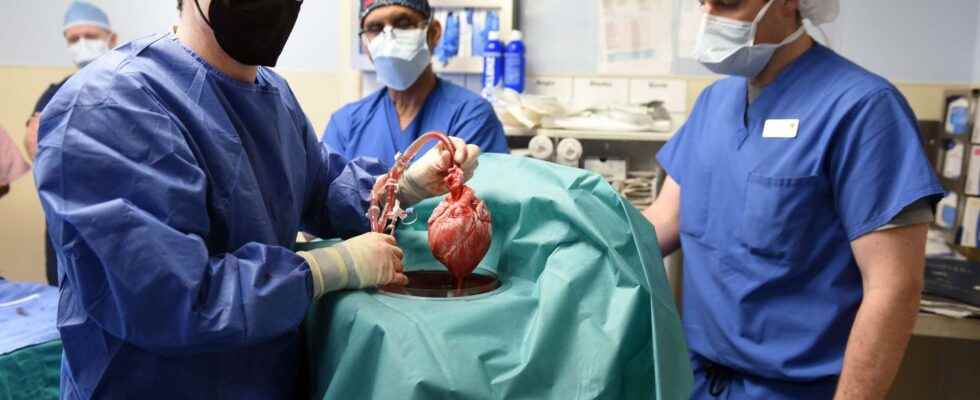Doctors from Baltimore, Maryland have successfully performed a one-of-a-kind xenograft. A genetically modified pig’s heart has been transplanted into a 57-year-old man with end-stage heart disease.
At 57, David Bennett, a resident of Maryland in the United States, is condemned to live in a hospital bed because of a serious heart disease. His state of health does not allow him to be eligible for a graft of heart and its problems ofarrhythmia deprive him of an artificial heart. Doctors from the University of Maryland then offered him an experimental last resort: to be transplanted a genetically modified pig’s heart. An operation never performed before on a patient with end-stage heart disease.
David Bennett agrees: it was either die or do this transplant. I want to live. I know it’s a risky attempt, but it’s my last choice “, he explains. The operation took place on January 7, 2022 and according to the press release from the University of Maryland, which retraces this incredible operation, David Bennett gate well, three days after the transplant.
A transplanted humanized pig’s heart
The transplanted heart comes from a genetically modified pig. A total of ten genetic modifications were made to maximize the chances of a successful transplant: three Genoa deleted to limit rejection, six human genes added to make the heart more accepted by theimmunity and a final gene to contain porcine tissue growth. The heart was removed from the animal by the same surgeons who performed the transplant and placed in a special box that kept it alive ex long live before transplant.
Preliminary animal studies showed that a pig’s heart grafted onto a monkey worked beyond three years. Based on this data and on David’s hopeless case, the FDA authorized this experiment on a compassionate basis. There are still many unknowns around xenografts for these operations to become routine procedures. Are the benefits for patients greater than the risks they incur? ” The success of the procedure has provided valuable information to help the medical community improve this potentially life-saving method in future patients. said Muhammad M. Mohiuddin, one of the professors of surgery who performed the transplant.
A step closer to xenografts
If this kind of operation offers hope for patients awaiting a transplant, the use of xenografts also raises important ethical questions about the use of animal organs in human medicine, but also around all experiments animals that it requires.
In 2020, 370 heart transplants have been performed in France. Patients are transplanted, in most cases, within a year of enrolment. But for some, this delay is too long and their health deteriorates before an organ is available. The use of xenografts could reduce waiting in the future. ” This transplantation is revolutionary, and a further step in the study of xeno-organs for human use said David Ayares, chief scientific officer of Revivicor Inc., the company that supplied the pig to doctors.
Interested in what you just read?
.
fs6
